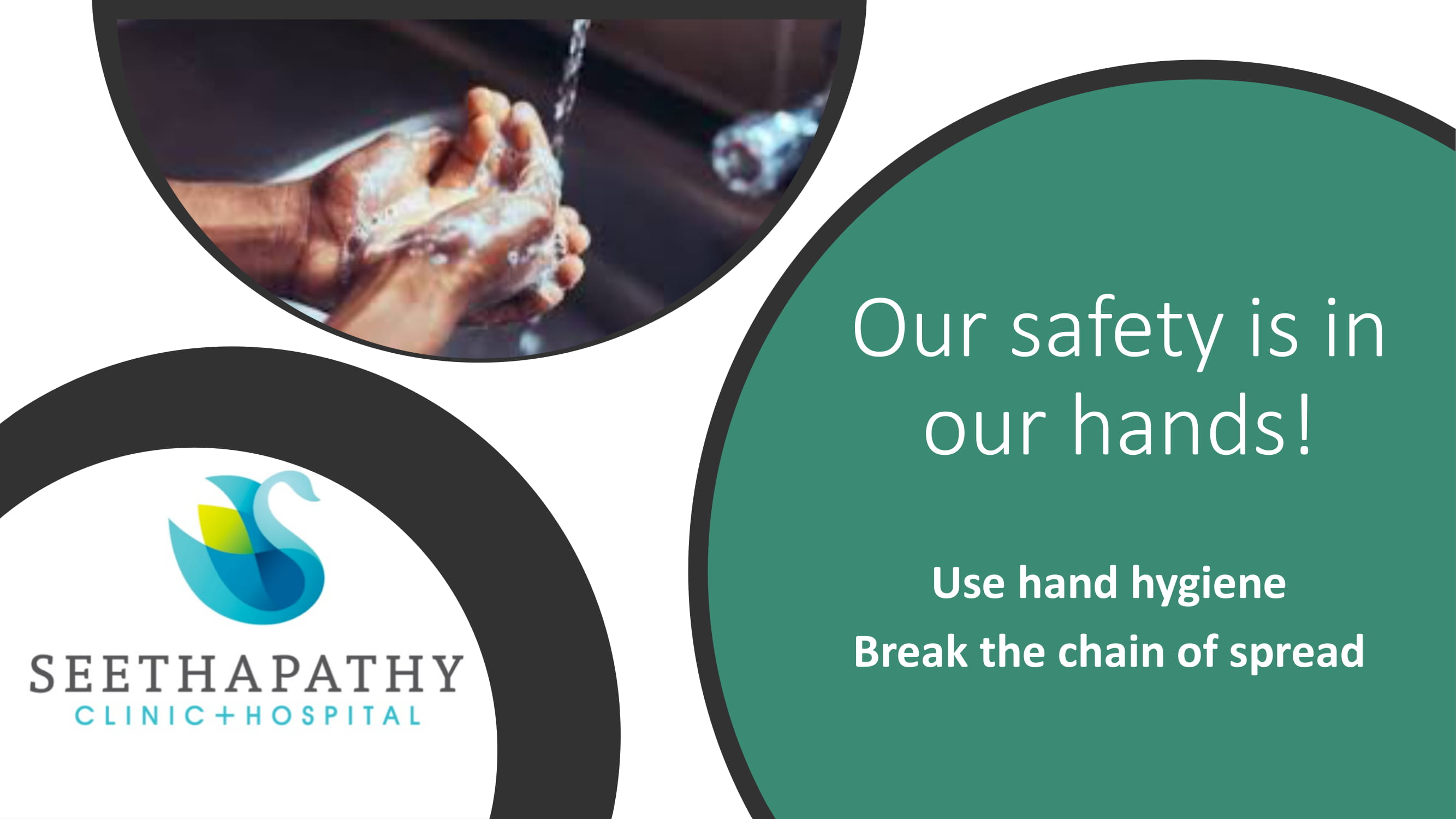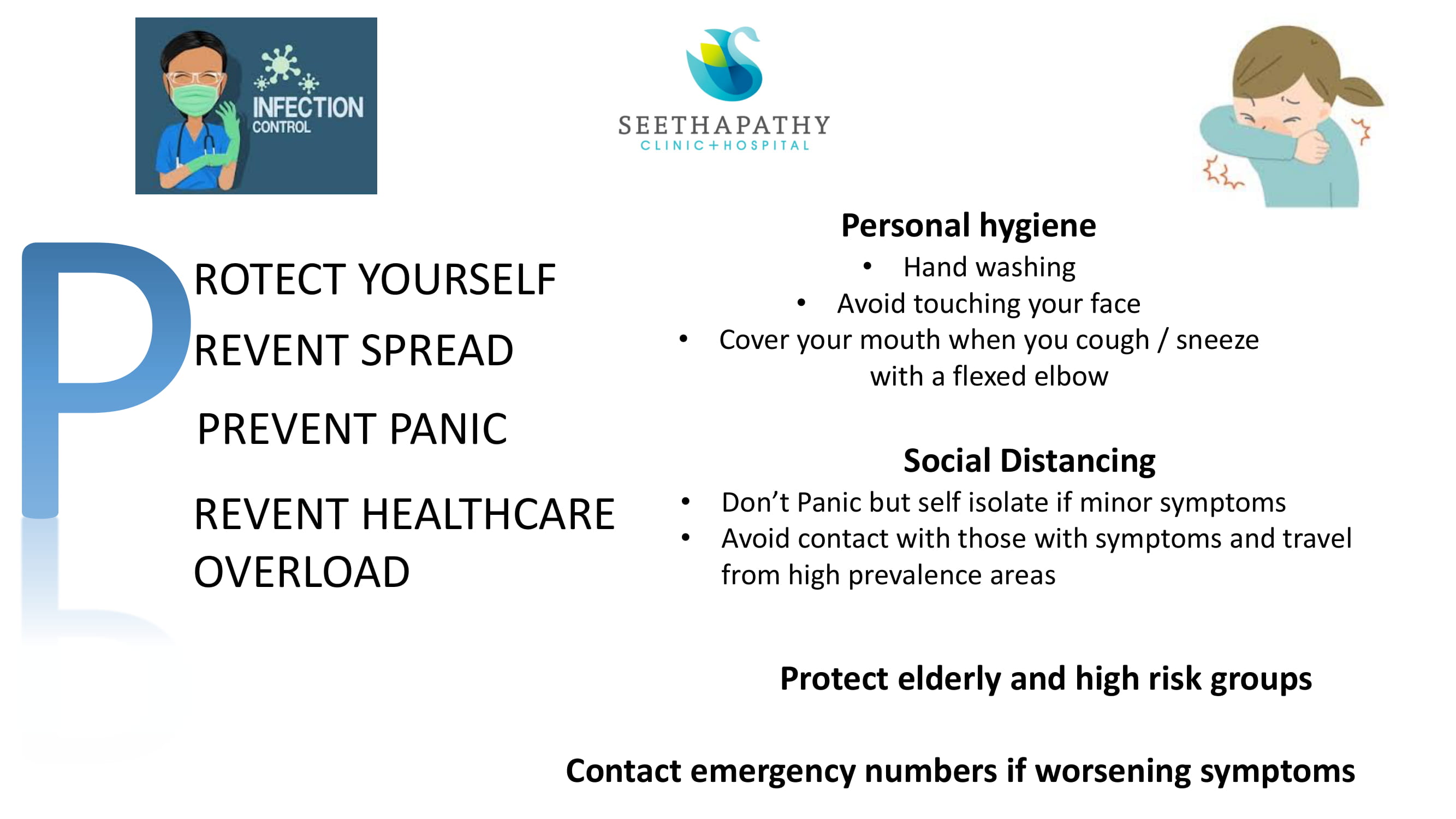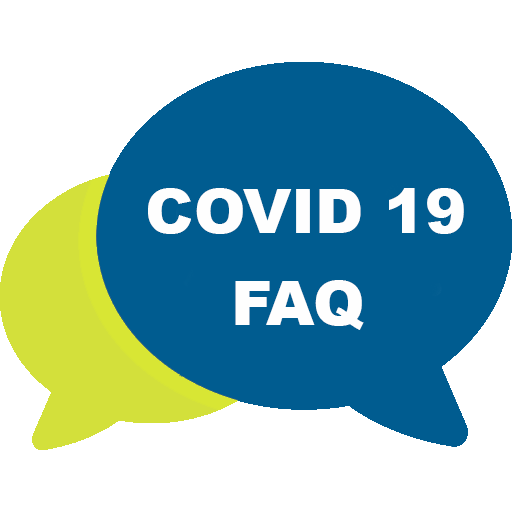COVID 19 FAQ
The symptoms of COVID-19 are similar to other colds and flus. These include:
• Fever
• Sore throat
• Cough
• Fatigue
• Difficulty breathing
Most people who have these symptoms could have a simple cold or other respiratory illness. Still if the symptoms are present Self Isolate. IF they persist or worsen call the helpline numbers to get tested.
Even If there is no history or travel and there are symptoms of cough cold and fever please call in and talk to a doctor before going to the clinic/hospital. Please wear a mask while going into the clinic.
Social distancing is important as it prevents the spread of the Corona Virus. It means
staying at home when you are unwell
avoiding large public gatherings,
keeping a distance of 1.5 metres between you and other people whenever
possible
minimising physical contact such as shaking hands
Important to use these precautions and protect older people and people with existing health conditions as they are more at risk of getting the disease.
You must stay at home to prevent it spreading to other people if
• If you have been diagnosed with COVID-19
• if you may have been exposed to the virus ( travel from areas where the disease is high / contact with someone who has tested positive or is symptomatic)
Staying at home means that:
One do not go to public places such as work, school, shopping centres, colleges
One asks someone to get food and other necessities and leave them at your front door
One does not let visitors in
If there are elderly people in your home, then separate yourself from them in a desginated room and do not come into contact with them. DO not share towels, plates and cups with them.
Inside your home you don’t need to wear a mask. If you need to go out to seek medical attention, wear a surgical mask (if you have one) to protect others
May people who get infected may not get sick at all or have only mild symptoms. Some may get sick quickly and become very sick needing hospitalisation. In general, the younger age group < 40 are more likely to have milder disease
• Elderly people
• People with compromised immune systems ( such as those on chemotherapy )
• People with diagnosed chronic medical conditions (diabetes, lung disease)
You do not need to wear a mask if you are healthy
Masks can help to prevent transmission of disease from infected patients to others
Masks are not currently recommended for use by healthy members of the public for the prevention of Corona virus infections.
There are currently no data suggesting an increased risk of miscarriage or early pregnancy loss in relation to COVID-19. There is also no evidence of intrauterine fetal infection with COVID-19.
At the moment in an effort to limit spread and minimise the chances of getting infection from the hospital, it is recommended that routine visits are delayed.
We are taking phone consultations to discuss your problems or concerns and advice. Please email reports for review.
You will be seen if :
If you have any urgent need to consult
Are pregnant over 36 weeks and need to have your regular weekly visits
Are high risk with medical problems that need to be reviewed
Scheduled scans at a particular time
Kindly call and ensure that you are coming in at a time when someone from the team can see you with minimal waiting.
Routine appointments for women with suspected or confirmed COVID-19 should be delayed until after the recommended period of isolation. You can always call in your consultant to get advice on what to do.
If urgent consult is needed, then call in and go so that the team is aware and will be able to take care of you with precautions to limit spread of infection in place
Call in and speak to your doctor. If there is no need to go in they will advise you on the phone and reschedule the visit for a couple of weeks later. If there is any need to see and review, urgently they will schedule the appointment so that there is no much waiting and crowding.


